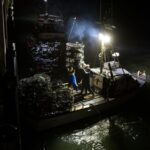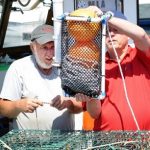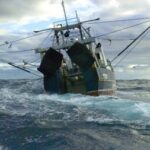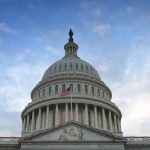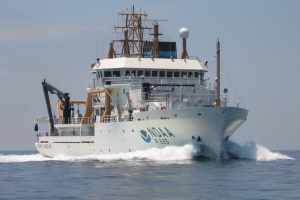Tag Archives: Supreme Court decision
Federal fishing monitoring program needs overhaul, GAO says
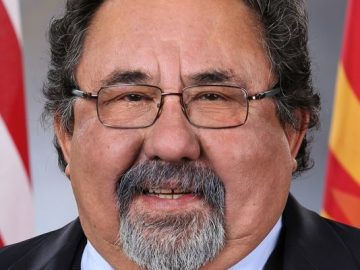 Only days after the Supreme Court dealt a blow to the federal government’s program placing human observers on commercial fishing boats, a federal watchdog said NOAA Fisheries should do a better job monitoring the industry. A report released Wednesday by the Government Accountability Office said NOAA Fisheries — also known as the National Marine Fisheries Service — has failed to execute its program as Congress intended under law. “NMFS’ efforts to track its performance in reducing and monitoring bycatch do not align with key elements of evidence-based policymaking related to performance management,” GAO said in the report, which was requested by Rep. Raúl Grijalva (D-Ariz.), the ranking member of the House Natural Resources Committee. more, >>CLICK TO READ<< 19:19
Only days after the Supreme Court dealt a blow to the federal government’s program placing human observers on commercial fishing boats, a federal watchdog said NOAA Fisheries should do a better job monitoring the industry. A report released Wednesday by the Government Accountability Office said NOAA Fisheries — also known as the National Marine Fisheries Service — has failed to execute its program as Congress intended under law. “NMFS’ efforts to track its performance in reducing and monitoring bycatch do not align with key elements of evidence-based policymaking related to performance management,” GAO said in the report, which was requested by Rep. Raúl Grijalva (D-Ariz.), the ranking member of the House Natural Resources Committee. more, >>CLICK TO READ<< 19:19
Bristol Bay Fishermen Celebrate Supreme Court Decision to Reject Alaska v. EPA
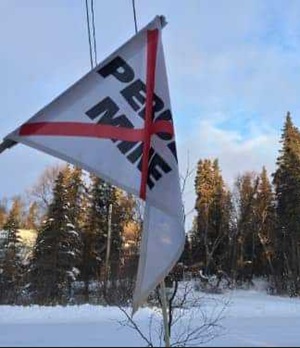 Monday, the United States Supreme Court announced their decision to reject the State of Alaska’s challenge of the Environmental Protection Agency’s (EPA) Clean Water Act veto of the proposed Pebble Mine. Commercial fishermen joined Bristol Bay Tribes and a majority of Alaskans in asking EPA to act to veto Pebble Mine over a decade ago. This protective action, finalized in January of 2023, ensured that Bristol Bay’s irreplaceable salmon runs – which sustain the people, culture as well as the foundation of a commercial fishing industry that generates more than $2 billion annually in economic output and supports more than 15,000 jobs – are not impacted by irresponsible open pit mining. more, >>click to read<< 14:05
Monday, the United States Supreme Court announced their decision to reject the State of Alaska’s challenge of the Environmental Protection Agency’s (EPA) Clean Water Act veto of the proposed Pebble Mine. Commercial fishermen joined Bristol Bay Tribes and a majority of Alaskans in asking EPA to act to veto Pebble Mine over a decade ago. This protective action, finalized in January of 2023, ensured that Bristol Bay’s irreplaceable salmon runs – which sustain the people, culture as well as the foundation of a commercial fishing industry that generates more than $2 billion annually in economic output and supports more than 15,000 jobs – are not impacted by irresponsible open pit mining. more, >>click to read<< 14:05
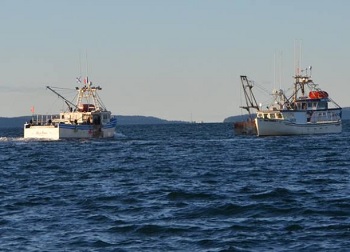
The historic ups and downs of the Acadian-Mi’kmaq relationship
Mi’kmaq fishermen, emboldened by a decades-old Supreme Court of Canada ruling affirming their treaty right to hunt, fish and gather in pursuit of a moderate livelihood, spent another day trying to drop their lobster traps in the waters there. Pitted against them were non-indigenous fishers who claim that the natives are threatening the local lobster fishery’s sustainability, and who have been making their point by cutting First Nation traps, and trying to pressure buyers not to purchase their harvest. Once again, the federal government stood mutely by, unwilling to clarify the question of what constitutes a “moderate livelihood” fishery, and then, by omission, further fuelling a situation that looks like it could turn violent at any moment. It sounds, therefore, strangely like the scene I encountered 21 years ago in Burnt Church, N.B. >click to read< 17:38


































